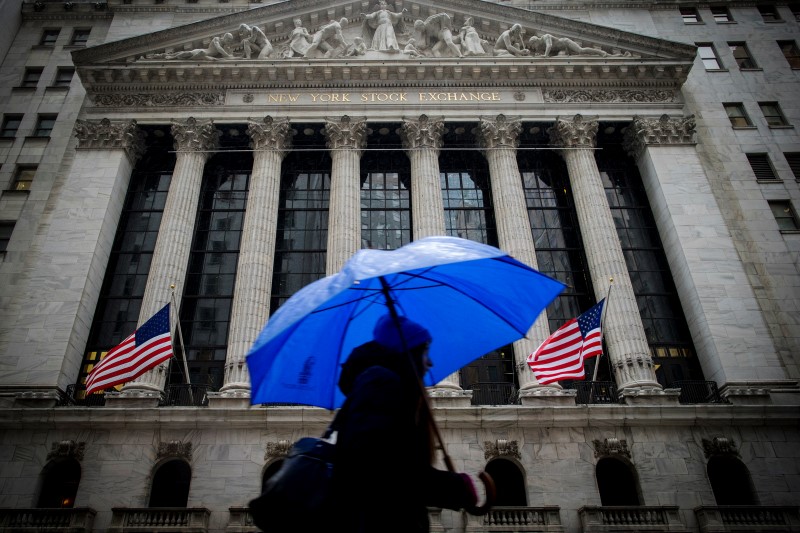By Caroline Valetkevitch
NEW YORK (Reuters) - U.S. stock investors may be bracing for further signs next week that the Federal Reserve could increase interest rates sooner rather than later, with retail sales expected to rebound after two straight months of declines.
A pickup in retail sales could show consumers are benefiting from sharply lower oil prices, but analysts say spending in February was likely curbed by unusually harsh weather in parts of the United States.
Friday's stronger-than-expected jobs report boosted expectations of a U.S. rate increase as soon as June, causing the market to sell off.
The S&P 500 ended the week more than 2 percent off its March 2 closing record high, while the Nasdaq was more than 70 points off the 5,000 mark, which it hit this week for the first time since March 2000.
Comments from some Fed officials underscored expectations of a June rate hike. Among them, Richmond Federal Reserve President Jeffrey Lacker repeated his view that the Fed should raise rates in June.
"The Fed is back at the top of the circle" in terms of the investor focus, said Kim Forrest, senior equity research analyst at Fort Pitt Capital Group in Pittsburgh.
"I think they're feeling some pressure to show that they really are data driven. The economy has been getting better, and what I think they're trying to do is overstay the party to make sure the economy really is better."
In the jobs data released Friday, unemployment dropped to a six-year low of 5.5 percent last month, within the range the Fed considers to be full employment. A Reuters poll conducted following the report showed many of Wall Street's biggest banks are more convinced the Fed will raise rates in June.
While a stronger U.S. economy is better for the U.S. stock market in the long run, investors have worried that if the Fed raises rates too soon, it could dampen growth in an economy that has been slow to recover.
Besides U.S. retail sales, next week brings the preliminary March reading on consumer sentiment from the University of Michigan. Sentiment unexpectedly fell in February from an 11-year high, adding to recent worries about spending.
Apple (O:AAPL), which rose 0.2 percent on Friday after S&P Dow Jones Indices announced the stock would be added to the blue-chip index this month, will remain in focus next week when it is expected to unveil the long-awaited Apple Watch in San Francisco on Monday.
Also on Monday, the European Central Bank is due to begin its one-trillion-euro stimulus plan, an effort to jump-start the struggling euro zone economy by buying bonds.
That could increase volatility, said Jeff Carbone, managing partner at Cornerstone Financial Partners in Huntersville, North Carolina.

"You look around the world and you've got a deflationary" environment in many countries, he said. "A rise in interest rates is knocking at the Fed's door, but there still doesn't seem to be enough strength out there to make it happen."